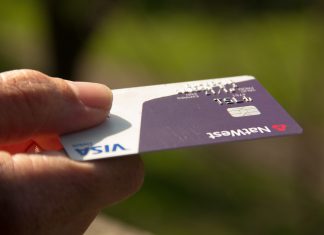Navigating the intricate relationship between blockchain technologies and data protection regulations, especially the General Data Protection Regulation (GDPR), has proven challenging. OMNIA has explored how blockchain and GDPR can work together.
Established by the European Union in 2015, GDPR is renowned as the world’s most stringent privacy and security law, imposing substantial fines for violations.
The clash between blockchain technology and data protection rules spans multiple arenas. A pertinent issue lies in the interpretation of the data typically housed on a distributed ledger. Examples include public keys and transactional data. A question posed is whether such hashed data qualifies as personal information under GDPR. Although the matter is debated, it is generally accepted that such data is likely classified as personal under GDPR, exposing organisations to hefty penalties for non-compliance.
Another concern is whether personal data can be adequately anonymised to fulfil GDPR’s anonymity threshold. In this scenario, there’s no clear-cut solution, leaving organisations in precarious positions.
GDPR also poses difficulties for the blockchain with its principles of data minimisation and purpose limitation. These principles require that processed personal data is minimal and utilised only for predetermined purposes. Blockchain’s inherently expanding nature and its replication across multiple global nodes complicates compliance with these principles.
Moreover, the GDPR’s concept of the “right to be forgotten” raises further issues. While GDPR permits individuals to erase their data from the web, the fixed nature of blockchains makes amending and deleting data extremely difficult.
Compliance extends to how anonymity is utilised in certain circumstances. In some cases, unscrupulous entities exploit this anonymity for illicit activities such as money laundering or non-financial crimes. As a result, entirely private cryptocurrencies like Monero and ZCash have been delisted from multiple cryptocurrency exchanges.
In the light of these concerns, OMNIA Protocol has committed to implementing strict measures at its privacy relayers dAPI gateways, the entry points to blockchain networks. These measures will automatically reject transactions linked to unlawful activities or those on blocklists.
Unlike privacy-centric coins like Monero, OMNIA is a utility token granting access to OMNIA Protocol’s services. These services offer both off-chain privacy and network-level guarantees, akin to Tor’s privacy for generic traffic.
The protocol also offers users protection for their privacy between the application layer – encompassing wallets, decentralised applications, and more – and the blockchain nodes that implement the consensus mechanism. In addition, OMNIA enhances on-chain privacy with off-chain privacy, protecting users from attacks like frontrunning.
OMNIA enhances on-chain privacy solutions that safeguard the transaction amount and recipients, while preserving transaction compliance. They achieve this by enabling the generation of zero-knowledge reports, allowing users to voluntarily disclose compliance with selected counterparties.
OMNIA Protocol is a decentralised infrastructure protocol for secure blockchain access. By eliminating a single point of failure, blockchain applications or wallets integrating with it will never be disrupted. The truly decentralised solution from OMNIA requires zero technical knowledge, allowing all users to set up their nodes with minimal effort.
Read the full post here.
Keep up with all the latest RegTech news here
Copyright © 2023 RegTech Analyst
Copyright © 2018 RegTech Analyst






